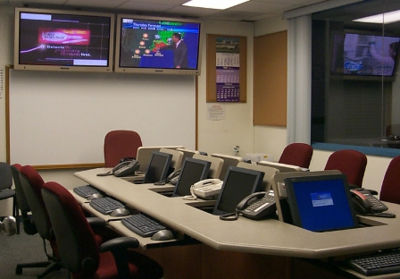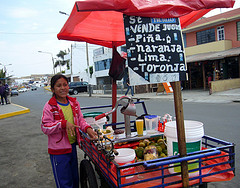Day in the life of a retail travel agent
- " Travel is the change in location of people on a trip through the means of transport from one location to another. Travel is most commonly for recreation (as part of tourism or to visit friends and family), for business or for commuting; but may be for numerous other reasons. A travel agent is the professional who assists you with your travel plans.
This is the second of four courses which form "Introduction to Tourism" a course contained within the Certificate in Applied Travel and Tourism programme. Once all four courses have been completed those enrolled will also have gained the National Certificate in Tourism (Core Skills) Level 3.
Contents
[hide]Learning Objectives
1. Unit Standards linked to this course: US 23769, 23758, 23768, 23766, 25508, 18327
Scenario
As part of your duties as a travel agent you are to organise the travel arrangements for delegates attending the NZ Institute of Wine Conference at Mission Estate, Napier.
Travel Agent
A travel agent, as the name suggests, is an "agent" for travel suppliers such as airlines, cruises, all types of accommodation, tours, insurance, foreign exchange etc. The travel agent is paid a commission dependant on the product and volume of the product that is sold by the agency. In recent times, travel agencies have had to charge a service fee for their services due to lower commissions or no commission being paid by the supplier. Some travel agencies specialise in selling corporate or leisure travel. They may also be experts in certain markets e.g. cruising, senior citizens, an area of the world, or adventure travel. Your day as a travel agent can include giving advice on all aspects of travel including weather conditions, customs and passport documentation, selling, making reservations, issuing tickets and travel documents. You will confer with suppliers and customers face to face, by telephone and by email. Customer service and selling activities will account for over 50% of the travel agents time so they must have excellent skills in these areas.
Sales
There are two different types of sales; "retail" sales, when the customer comes to your business or "outside" sales when the you go to the customer e.g. as a sales representative.
If you are in a retail travel agency, how does the customer or client choose to come to your agency? The main reasons will be:
- recommendations from friends or relatives
- you offer better prices or value for money
- or your window display or your office looks more inviting
Why do people buy?
- They have a need e.g. attending a conference and need to book flights and accommodation
- They have a desire e.g. they wish to visit the Pyramids
To sell to a client satisfying a need, you will be required to provide quick and efficient service but still be courteous and provide good value options to fulfil their requirements.
Selling to the client buying to satisfy a desire, you must ensure you remember you are part of the "total experience" for the client's holiday. The "total experience" includes everything they see, hear, touch, smell or feel from the time they start planning their holiday until they return home. You will need to appeal to their emotions when selling by speaking with enthusiasm, using descriptive words e.g. majestic views and telling them about your own experiences.
Sales process
There are many different sales steps outlined in literature and on the internet but a simple plan that can be used is as follows:
- research - using listening and questioning skills
- identify opportunities - choose suitable products including "preferred" products and using up-selling and add-on selling techniques
- make a proposal - suggest a holiday/itinerary, can be verbally or written - will include travel details, costs and supplementary information e.g. visas, luggage
- negotiate - clients will raise any objections e.g. cost, type of hotel - ensure you recommend products which match their requests and emphasis benefits
- close the sale - should be easiest step - ask client for the sale - Shall I go ahead with the booking?
- follow up - after client has returned from holiday, either phone, email or visit to obtain feedback on their experiences
To be able to obtain all the needs of the clients' holiday, you need to use "open questions" e.g. what, when, who, why, how. 'Active listening' is ensuring you are listening with understanding, either by using positive body language or using minimal encouragers such as "right" etc.
When making a proposal, your selling skills will be of importance. You need to be able to distingush between features (e.g. the facts, specifications or inclusions of a product - a hotel room has air conditioning) and benefits (why a feature is useful or relevant to the client - what's in it for them?? - the air conditioning will keep them cool in the hot climate).
The activity on itemising the benefits of features will familiarise you with this selling technique.
Employment Relations Act 2000
The Act covers minimum employment rights and conditions between employees (anyone who has agreed to be employed, under a contract of service, to work for some form of payment) and an employer. The Act covers specific rights as follows:
- Written employment agreements (contracts)
- Minimum pay
- Payment of wages and keeping of records
- Holidays and leave
- Unions
- Health and Safety
- Trial periods
All details and the 2010/2011 amendments can be found on the Department of Labour website.
Quality and service
Quality can be defined as consistently exceeding visitors expectations. This can be a difficult concept for tourism operators as tourists expectations can be different dependent on their idea of what quality means to them. Some of the quality values can be:
- value for money
- novelty or variety
- service
- uniqueness
- consistent standards
- luxury
Expectations of tourists can also be set by the marketing of products so the advertising must not over-promise so customers expect too much of a destination of product. Service quality is about the customer's experience rather than the quality of the product e.g. airline or hotel.
In New Zealand, quality is assessed by New Zealand tourism's official quality agency, Qualmark New Zealand. It is a government and private sector partnership between Tourism New Zealand and New Zealand Automobile Association. Qualmark licenses professional and trustworthy New Zealand tourism businesses to use the Qualmark 'tourism's official quality mark' to help international and domestic travellers select places to stay, things to do and ways to get around.
It's a role defined for Qualmark in the New Zealand tourism strategy to help achieve the industry's overall goal to enhance New Zealand's reputation as a world class visitor destination. Qualmark is run on a not-for-profit basis as a service to travellers and the tourism industry. Qualmark offers two systems; a star grading for accommodation and an endorsement (pass/fail) for activities, transportation and services. Only tourism operators which have been graded or endorsed by Qualmark will be marketed by Tourism New Zealand overseas in order to ensure visitors to New Zealand have a quality experience. The Tourism New Zealand video shows how Qualmark is promoted to tourists.
Assisting people with a range of disabilites is a necessary skill for a travel agent. The disability may be physical, cognitive, mental, sensory, emotional, developmental or some combination of these.
The World Health Organisation defines disabilities as follows: "Disabilities is an umbrella term, covering impairments, activity limitations, and participation restrictions. An impairment is a problem in body function or structure; an activity limitation is a difficulty encountered by an individual in executing a task or action; while a participation restriction is a problem experienced by an individual in involvement in life situations. Thus disability is a complex phenomenon, reflecting an interaction between features of a person’s body and features of the society in which he or she lives."
Countries around the world have different standard levels for providing access and facilities for people with disabilities. You must be able to provide details of transportation and accommodation that is available for your traveller with a disability and be able to communicate effectively with them.
Calculations for tourism
Wherever you work in the tourism industry you will have to perform numerous calculations.In most instances you will use a calculator but it is also important to know how to estimate the correct answer. The following definitions will assist in your understanding of this subject:
- Commission - fee paid to travel agency from a supplier e.g. hotel. Usually a percentage of the total cost
- Gross - price including the commission
- Nett - price excluding (not including) commission
- Rounding - to the nearest ten. General rule is numbers 1-4 round down, and 5-9 round up to nearest 10.
- Exchange rate - rate that specifies how much one currency is worth compared with another currency.
- GST - Goods and Services Tax. A New Zealand Tax of 15% on goods and services.
- Decimal places - number of digits after the decimal point
Commission
Commission is a fee paid for providing a service. The suppliers (tour operators or accommodation providers etc) pays the travel agent a fee for promoting and selling their products.This commission along with any fees charged is how the travel agencies can generate a profit.
The quotation you receive from the supplier, usually includes the commission i.e. is the gross figure or GST inclusive. The commission percentage varies according to the supplier but usually the travel agency will receive 10% commission for tour operators and accommodation providers and between 30-40% from insurance companies. The amount airlines pay continues to fluctuate but normally there is no commission paid on domestic New Zealand flights or to Australia so the agency will charge a fee to the client to provide this service.
GST
You will need to be able to perform the following calculations:
- How to add 15% GST to an amount e.g. GST exclusive amount $250.00 multiply by 15%. $250.00 multiply by 1.15 = $287.50. ($287.50 - $250.00 = $37.50GST)
- How to calculate the GST component (15%) of an amount e.g. GST inclusive amount $370.00 divide by 1.15 = $321.74. $370.00 - $321.74 = $48.26GST
An important fact is that GST is not levied on overseas travel. The Inland Revenue Department provides further information on GST on their website.
Foreign exchange
Foreign exchange is when you exchange money from one country's currency into another country's currency. You may be travelling to Australia and will need to change your New Zealand dollars into Australian dollars to pay for your expenses and shopping while on holiday. When you return to New Zealand, you will need to exchange your unspent Australian dollars back into local currency.
In order to do this, you need to know the current exchange rates. These rates are set based on the state of a country's economy and market, and numerous other world wide factors which affect money markets. The New Zealand dollar fluctuates daily so you will need to check the rate continuously to ensure you are quoting correct rates. Current exchange rates can be obtained from banks or through your computer reservation system. They are also available through numerous websites. e.g. westpac
When you exchange New Zealand dollars into a foreign currency, you multiply the New Zealand dollar amount by the current exchange rate which will then equal the foreign currency total. e.g. NZD150.00 x .7240 (AUD exchange rate) = AUD108.60. If you wish to stay at a hotel which is advertising a room @ USD70.00 per night, to calculate the New Zealand dollar amount you need to divide by the current exchange rate. e.g. USD70.00 / .7780 (USD exchange rate) = NZD89.97. Complete the activity Foreign Exchange.
Administration
This course is used in the following programme:

